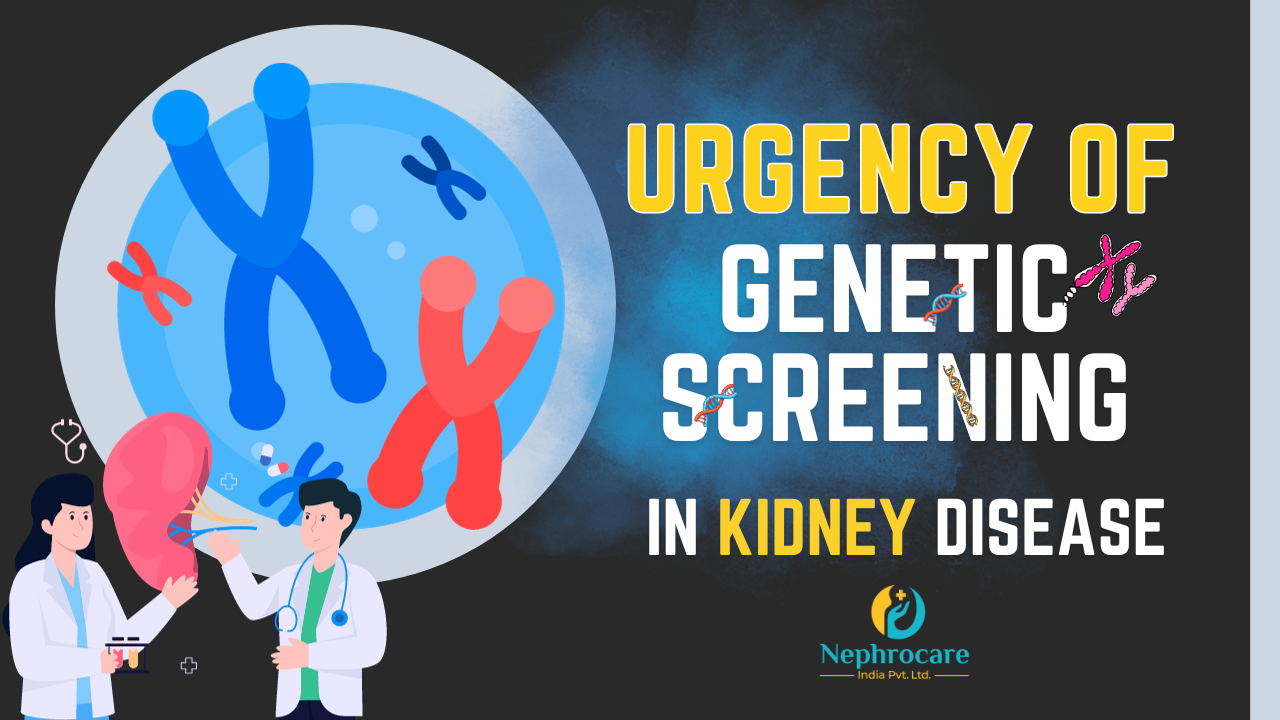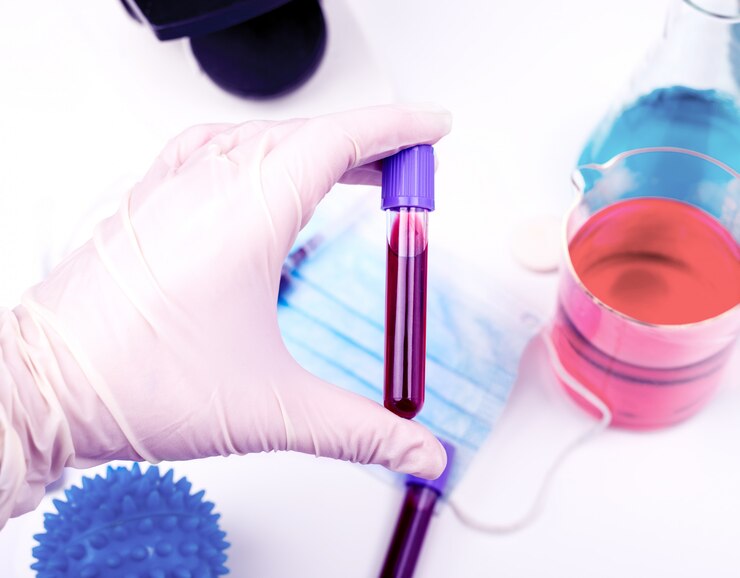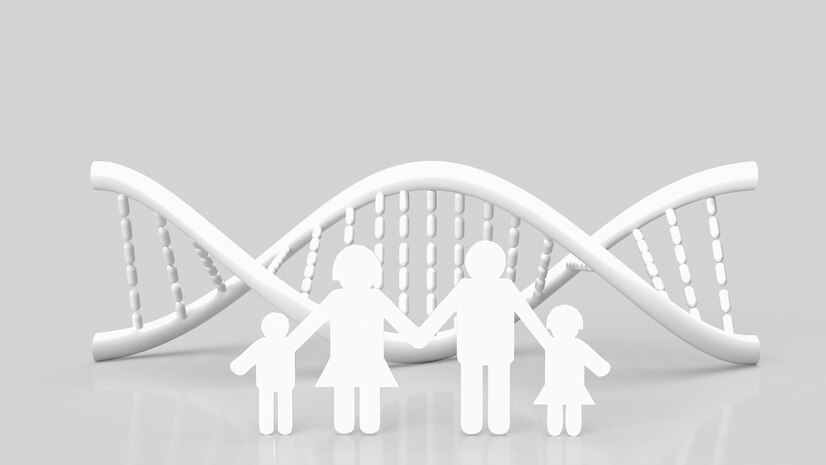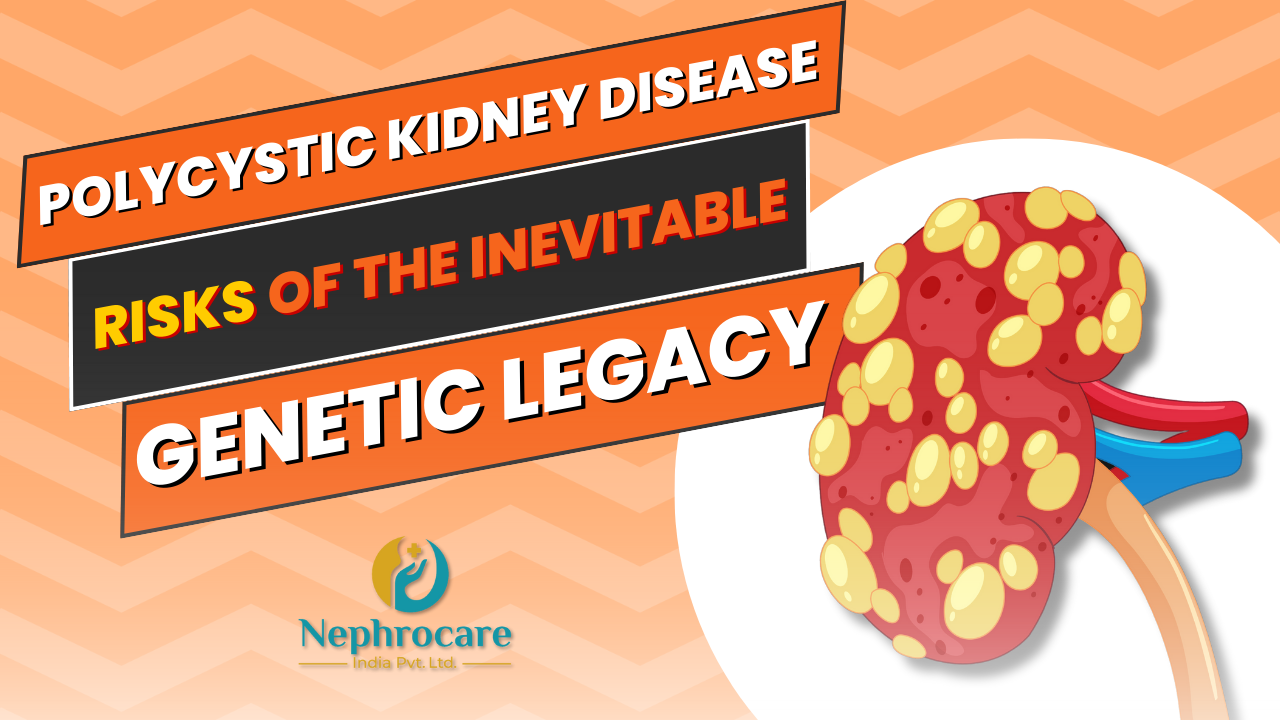
- 1346
- 2
The Urgency of Genetic Screening for Kidney Disease
Introduction:
In the ever-evolving landscape of healthcare, genetic screening has emerged as a powerful tool for pre-emptive healthcare management. One area where it holds particular promise is in the realm of kidney disease. Chronic kidney disease (CKD) affects millions worldwide, and early detection can significantly alter the trajectory of the disease. In this blog, we will explore the importance of genetic screening for kidney disease and how it can pave the way for personalized and proactive healthcare.
Decoding Genetic Insights: Navigating Your Kidneys

Genetic screening involves analyzing an individual’s DNA to identify any variations or mutations that may predispose them to certain health conditions. In the context of kidney disease, genetic screening can unveil genetic markers associated with an increased risk of developing kidney-related disorders. This information is invaluable for individuals and healthcare providers in crafting targeted prevention and treatment strategies.
Genetic Screening: Why it’s Vital
1. Early Detection for Kidney Wellness:
One of the primary advantages of genetic screening for kidney disease is the ability to detect predispositions early on. Many kidney diseases, such as polycystic kidney disease (PKD), Alport syndrome, nephrotic syndrome, focal segmental glomerulonephritis, nephrolithiasis, and congenital anomalies of the kidney and urinary tract have a genetic component.
Read more about polycystic kidney disease click below
Identifying these genetic markers enables healthcare professionals to initiate preventative measures before symptoms manifest.

2. Delaying Kidney Failure:
Genetic Guidance for Healthy Kidneys: Early Action, Better Lives – Even without a known treatment, genetic testing aids in proactive management, potentially delaying kidney failure. Understand genetic risk to:
- Implement necessary lifestyle changes based on genetic insights
- including management of BP, avoidance of nephrotoxic agents (e.g., non-steroidal anti-inflammatory drugs),
- dietary recommendations,
- an active lifestyle
- Monitor kidney function vigilantly.
- Improves quality of life and reduces economic burden.
You can join to our Renal Cooking WhatsApp group for any consultation regarding your personalized diet planning
If you want to enjoy an active life and improve your quality of life please join to our Yoga Program ‘MUKTI‘ by clicking the following link
3. Personalized Medicine after Genetic Screening:
Genetic screening facilitates the era of personalized medicine, tailoring healthcare interventions to an individual’s unique genetic makeup. Incorporation of genetic information into treatment plans, guides healthcare providers to optimize drug selection and dosages, minimizing adverse effects and maximizing efficacy.
4. Family Planning and Genetic Counseling:

Understanding the genetic basis of kidney disease is pivotal for informed family planning decisions. If an individual is aware of their genetic predisposition to kidney disease, they can make informed choices about family planning, including the option for pre-implantation genetic diagnosis (PGD) or adoption.
Additionally, genetic counseling becomes an essential component of healthcare for individuals with identified genetic risks. This process empowers individuals and families with the knowledge needed to make informed decisions about their health, providing emotional support and guidance.
5. Other advantages of Genetic Screening:
Non-Invasive Collection: Genetic testing, often less invasive, with DNA collected from cheek brushings.
Revealing Extra-Renal Features: Diagnosis uncovers undetected extra-renal clinical features associated with the disease.
Inheritance Pattern Insight: Indicates the inheritance pattern, guiding family members on potential risks and testing.
To know about the inheritance pattern of kidney stone you can go through the blog below

Age-Related Severity Prediction: Predicts the severity of the mutation, including the risk of kidney failure at a younger age.
Clinical Trial Eligibility: Facilitates enrollment in clinical trials for new treatments, advancing research possibilities.
Exclusion of Misdiagnosis: Rules out certain diagnoses, expediting the use of more appropriate treatments.
Research Advancements: Aggregated genetic data from screenings can be anonymized and utilized for research, helping scientists better understand the genetic underpinnings of kidney diseases. This collective knowledge can drive advancements in treatment options, leading to more effective therapies and improved outcomes.
Conclusion:
In the pursuit of comprehensive healthcare, genetic screening for kidney disease stands as a promising solution. This innovative approach not only affirms clinical diagnoses but also assists in crafting personalized management strategies, leading to the development of more accurate treatment plans while avoiding unnecessary investigations. As technology progresses and our comprehension of genetics expands, this groundbreaking tool holds the potential to create a more robust and healthier global community, safeguarding kidneys. It represents a paradigm shift in healthcare, transitioning from a reactive and standardized model to a proactive and personalized one. The adoption of genetic screening ensures a future where our approach to health is not just progressive but authentically transformative.
Comment
2024-04-05 09:22:15
Surajit Chakraborti
Myself sir\'s patient, not a CKD, preventive treatment/care going on
Thank you for the update. Wishing you continued wellness and progress in your care plan. Please Keep an eye out for further updates on health-related blogs at https://www.drpratim.com/blogs/
Check Your EGFR
***We Promise, no spam!









2024-04-05 16:02:19
Mamata Roy
My mother was polycystic kidney And her life was only 60 years
I'm sorry to hear about your mother. Since this is an inherited genetic disorder, you need to schedule regular checkups and consult with a nephrologist for further guidance and monitoring